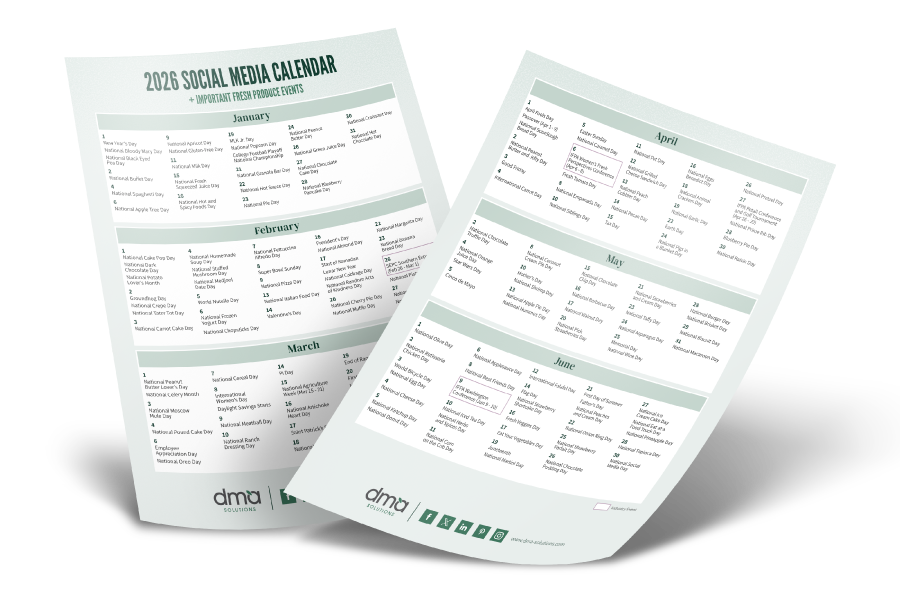How common is it to hear someone make the preemptive disclaimer, “Just FYI, I’m not good at math,” before completing such tasks as calculating a tip (in the pre-smartphone era, anyway) or making virtually any conclusion based on data or analytics? In a similar vein, we find that many people—even seasoned marketers!—believe the ability to write well is entirely innate and due to creative “genius” rather than depending in large part on practice. As a result, many people hesitate to put forth the necessary time and effort to produce excellent writing, fearing they will prove they just don’t have what it takes. In fact, in his book On Writing, the inimitable Stephen King himself calls fear the “root of poor writing.”
All marketers could benefit from becoming better writers, so luckily, there are some tried-and-true tricks to elevating your writing prowess. Check out some of our favorite bits of writing wisdom from the book, Everybody Writes: Your Go-To Guide to Creating Ridiculously Good Content, by Ann Handley:
4 Tips for Becoming a Better Writer
Tip #1: Improve Your Writing…Every Day
“Make writing a daily habit—even if you only have 15 minutes.”
Practice is the key to improving at any pursuit, and we can all get better at anything at which we are willing to practice. Despite a culture that reinforces the notion that talent equates to excellence with (seemingly) little effort—hence, our love for “fast learners” and “natural talents”—even the prodigious Mozart had to adhere to the oft-cited “10 years and 10,000 hours” rule, as Robert Greene discusses in his book Mastery. No matter how “talented” any of us are at a given pursuit naturally, none of us become great without putting in the necessary work to get there—not even Mozart.
Tip #2: Improve Your Writing…By Paving Your Own Way
“Great writing is like math: it has logic and structure. It feels solid to the reader; the writer is in control, having taken on the heavy burden of making a piece of writing clear and accessible.”
Yet despite the inherent logic and structure, there is no one “right” way to organize a piece of writing. Some writers come up with a title and construct an outline, then move directly to writing the piece in order. Others start with the conclusion (yes, seriously)—the resolution of their mental thesis—and work backwards. Still others of us vary their approach with each piece (or work on seemingly random sections at a time—myself included at times), possibly even leaving the title for last.
And you know what? That’s okay. As Handley says, “Great writing isn’t written so much as assembled.” The main takeaway here is to do what works best for you—as long as your finished work is useful to your target audience, you have succeeded.
Tip #3: Improve Your Writing…By Serving Your Readers
“Good writing serves the reader, not the writer…you (as a marketer or content creator) should be the customer advocate.”
There’s certainly nothing wrong with enjoying what you write—in fact, we hope that you do—but is your work doing what it is intended to do…which is provide useful information to your readers, and in an accessible manner? As Handley states in her book, the key to the essence of what makes any writer—whether Hemingway or (Shonda) Rimes—“great” is a relentless empathy for the target audience. Who are they, what are their needs, and how can you (and your brand) help meet those needs and wants? And more importantly, what does it look like to write with empathy?
“Good, pathologically empathic” writing, according to Handley, strives to “explain, to make things a little bit clearer, to make sense of the world—even if it’s just a straightforward product description.” With the many deadlines marketers must meet, it can be easy to rush through something as short as a product description (or even an image caption) without giving much thought to the user experience. But when at all possible, take a step back and consider what it might feel like to consume your content. How can you make it interesting—or even better, captivating? When in doubt, show your readers what you want them to imagine rather than telling them; strive to craft a story every time you sit down to write.
Famous poet and playwright impatiently sits for portrait, presumably considering his clandestine travel arrangements prior to whatever it was he did whilst falling completely off the (historical) map from the period of 1585-1592. (Perhaps this is when he wrote the inscription for his own gravestone?)
OR
Shakespeare, circa 1500-something.
Tip #4: Improve Your Writing…By Being Brave
“Brilliance—or anything close to it—comes on the rewrite.”
Picture this: you, fabulously clad in a fashionable ruffle á la aforementioned long-gone guy named William, are struck by an almost divine inspiration, and it’s as if your fingers have minds of their own—you know exactly what to say in your next marketing brief (or blog post…copy for the new website…prospective presidential election speech…). After typing furiously for a half-hour that seems to fly by, you wrench a seamless, first-draft masterpiece from the printer (or typewriter, if you’re into that) with a flourish, ready to broadcast said work of art to a world waiting with bated breath to hear of your profound wisdom via Instagram.
If the above seems like a goal to which anyone should aspire, know that you have either 1.) read too many Austen novels, or 2.) been struck by a serious case of unrealistic expectations (typewriter = yes, first-draft perfection = no). The truth, according to Handley, is that “brilliance—or anything close to it—comes on the rewrite.” This is a fact to which I (and every other writer I know) can attest firsthand. Let’s face it: writing can be hard…AND that doesn’t mean you aren’t cut out for it simply because the right words don’t always flow freely. Sometimes, great writing requires a little perseverance and a whole lot of willingness to just do the darn thing—all insecurities and judgments of that first “ugly draft” aside.
At the end of the day, if you want to get better at writing…just write.
Have other great copywriting tips to add? Leave us a comment below or reach out to us on Twitter @TheCoreBlog!
{{cta(‘5de978d7-8c0c-4f83-8388-4d52595702af’)}}


